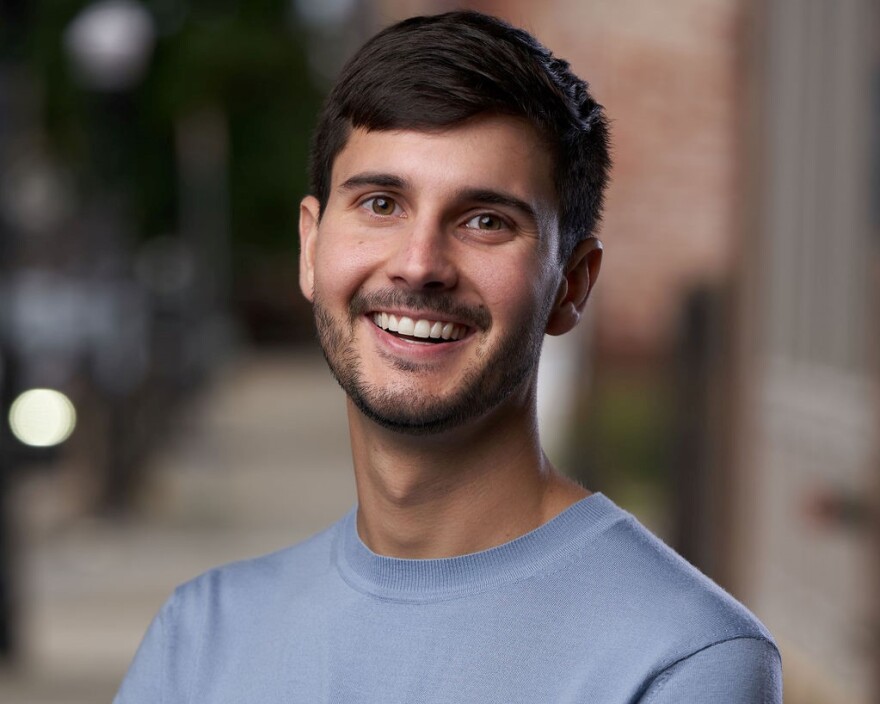In March, the Florida Board of Governors, which oversees the state’s universities, issued an emergency regulation banning TikTok and WeChat. This move came about two years after the NCAA started allowing athletes to profit off of their name, image, and likeness, or NIL. William Glass, CEO of Ostrich, which is a financial health app for college students with a primary focus on student athletes. He said these things could be related and affect students here in Florida.
Listen to the full conversation in the player above.

Profiting from NIL
In February, Gov. Ron DeSantis signed a bill to allow universities to help set up endorsement deals for college athletes in the state.
Ostrich CEO William Glass said those booster organization are one of the many ways that student-athletes make money.
"These collectives are getting money from wealthy people that support these athletic programs and are helping recruit," he said. "Those deals, no matter what happens with TikTok, will still get done, because the intent behind the money is to recruit student-athletes and to help those programs win."
According to Glass, 80% of NIL deals come from social media. "Then the others are appearances, signatures, memorabilia, things like that."
The top three sports receiving NIL deals are football, and men and women's basketball, adds Glass.
"When you look at collective deals, specifically, about two-thirds of those are going to male athletes. So when you look at the actual brand deals, and the smaller deals, majority of them are going to women."
Glass works mostly with Division II athletes and said about three out of four of the students he works with are interested in doing an NIL deal.
"But only about 2% to 5% have actually done a deal. Now we're working with a smaller sample size. So that's not representative of the entire state."
TikTok ban
Florida was one of the first states to allow college athletes to profit off their name, image and likeness.
Now, it's the first state to ban how many of those students make their money.
The Florida Board of Governors issued an emergency regulation banning TikTok and WeChat in March, which caused state universities like the University of Central Florida to ban access to those apps on its network and devices.
The student athletes that Glass works with told him they're not too concerned with the ban since they can still post to TikTok as long as they're not using the school's WiFi.
"I think the attention will go to whatever platform and the brands are still going to want to essentially use the student athletes as a way to reach another audience and promote their brand."
According to Student Athlete Insights, an NIL consulting and education practice, Instagram is the number one social media platform on which student-athletes promoted brands in the first quarter of 2023.
TikTok came in second at 22%.
Connecting athletes with businesses
For student-athletes looking for brand deals, Glass said one of the best places to start are marketplaces like Icon Source.
"They're mostly free for student athletes," he said. "You can put your information and link your Instagram, some of them link Tiktok, as well. You can find deals and see brands that are out there that are actively looking to find student athletes."
Student-athletes looking for NIL deals can also try marketplaces like MOGL or TwoYay, adds Glass.
"You can also go to local businesses, but if they're not used to doing that type of marketing or content, it can be really hard to create that organically if a brand isn't used to doing that. So that's why I say start with some of these platforms."
Businesses can use these marketplaces as well, but Glass said local businesses near colleges have a unique opportunity to connect with student-athletes.
He said it's not always about money. "The number one thing that we hear when student athletes are considering NIL deals is 'does this brand align with my values?'"
Glass adds that they also want to support local businesses.
"If you're a restaurant, or you've got a physical product, it costs you a lot less money to , give that away and let somebody experience your food, product service."
Copyright 2023 WMFE. To see more, visit WMFE.



